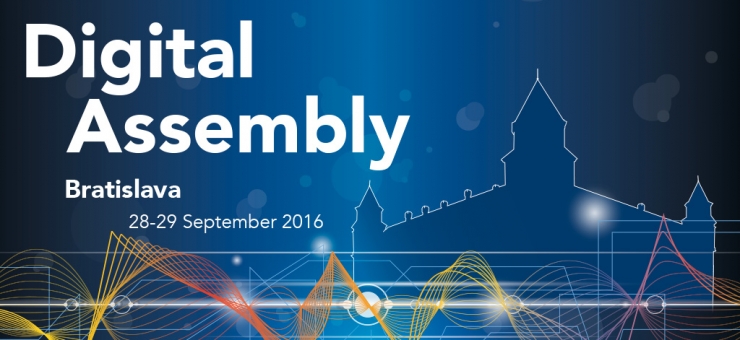News
We want an inclusive, empowering and cohesive digital future for all workers

by Oliver Roethig, UNI Europa Regional Secretary
On 28 and 29, I am attending the Digital Assembly 2016 in Bratislava.
Digitalisation is already changing the world today – and rapidly. UNI Europa, the European services workers union, fights for quality work in a digitalised world.
It must be the ambition of the EU and our societies that working life once again provides for a positive and predictable future for everyone based on fairness, progress and social safety. What we see however is new business models and new forms of work hollowing out existing labour standards while governments stand idly by.
The discussion at the Digital Assembly event is showing me once more that the labour dimension is not at the centre of the discourse, not among EU decision-makers nor most stakeholders.
However, the key challenge that needs to be addressed urgently is to make the labour market fit for purpose for workers and people, not just for companies. The European Commission has to come out with a bold initiative for a digital single labour market that stops the increase in precarious work and companies playing off one country against another. This is as much a question of labour regulation as it is of social security systems and tax issues.
What we need is a Commission that addresses the social and labour dimension of digitalisation, rather than regarding it as a side issue. If done rightly and proactively, the EU is actually best placed to lead the way globally in turning digitalisation to be a win for all.
What would a just digital economy look like for workers? It needs to:
- guarantee workers’ pay and working conditions that are decent and fair;
- empower all workers, regardless of age, skill type and geographic location to cope with rapid change;
- promote workers to organise in trade unions and bargain collectively, including transnationally;
- ensure that everybody contributes its fair share and governments have the means to combat inequality and precariousness.
On behalf of 7 million services workers in Europe, l call on the Commission to put people back into the centre of EU policies – ensuring a just digital economy will be key.
The Digital Assembly 2016 is taking place on 28 and 29 September in Bratislava, Slovakia. It is an event co-organised by the European Commission and the Slovak Presidency of the Council of the European Union.
You can follow the event here

